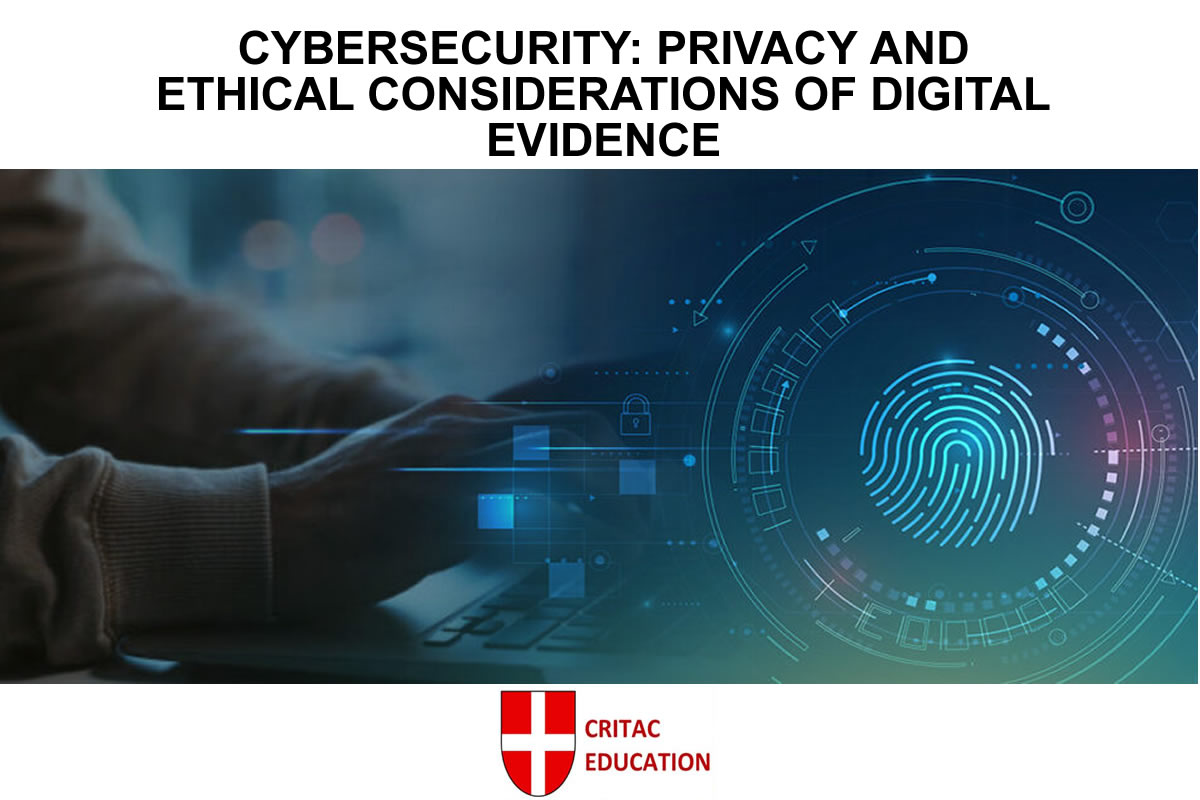In the digital age, where cybersecurity threats and data breaches have become increasingly sophisticated, the need for ethical practices and a strong foundation in privacy considerations is more critical than ever. Our comprehensive course, "Privacy, Ethics, and Digital Evidence in Cybersecurity," is designed to equip individuals with the knowledge, skills, and ethical framework necessary to navigate the complex landscape of cybersecurity and digital evidence.
This course begins with an exploration of the fundamental importance of digital evidence in the realm of cybersecurity. Through real-world case studies, such as tracing the origins of a ransomware attack and addressing the ethical concerns of social media data exploitation, learners gain a deeper understanding of the practical implications of these concepts.
Foundations of privacy and ethical principles are established as essential cornerstones. Whether it's the examination of privacy breaches in health data or the ethical dilemmas surrounding vulnerability disclosure, these foundational elements provide a solid footing for the ethical considerations that follow.
Legal frameworks and regulations governing digital evidence take center stage in module three. Learners will explore the diverse landscape of cybersecurity and privacy laws, such as GDPR enforcement and the complexities of cross-border investigations, gaining valuable insights into the legal aspects of their role.
As the course progresses, it delves into the challenges of balancing privacy rights with investigative needs. This includes understanding the role of privacy impact assessments and navigating conflicts between privacy and security, as exemplified by case studies involving online harassment and government surveillance.
The ethical challenges in collecting and handling digital evidence form another critical aspect of the course. Learners are guided through topics like data ownership, consent, and the dilemmas of data sharing for cybersecurity purposes, all through real-world scenarios.
The digital evidence lifecycle and chain of custody, privacy-enhancing technologies, and data anonymization techniques are explored in detail to ensure the highest standards of data integrity, privacy, and security are met during the investigative process.
Ethical considerations in malware analysis and reverse engineering add a layer of complexity, as learners navigate the responsible disclosure of vulnerabilities and the delicate balance required for ethical malware research.
The course also addresses transparency, accountability, and fairness in digital investigations, focusing on ensuring the processes are transparent and free from bias. Case studies will reveal the critical importance of these principles in maintaining the trust of stakeholders and the public.
In the context of incident response and cloud computing, learners will gain a deep understanding of privacy implications and the strategies for minimizing data exposure during cyber incident handling, thus safeguarding personal data in a sensitive environment.
Global perspectives on cybersecurity and privacy laws will further broaden horizons, providing a comparative analysis of international privacy regulations and showcasing case studies from different countries.
Anticipating the ethical challenges in emerging technologies such as AI, IoT, and blockchain, the course concludes with insights into ensuring ethical integration in these domains, while fostering a proactive approach to ethical considerations in future cyber investigations.
Throughout this course, a series of case studies examining high-profile cyber incidents offer valuable lessons learned from handling privacy crises, allowing learners to draw from real-world experiences to enhance their ethical decision-making skills.
Additionally, the course highlights the importance of training and professional ethics for cybersecurity practitioners. Codes of conduct and professional responsibilities are outlined to ensure that learners not only understand the ethical landscape but also embrace a strong ethical framework in their careers.
